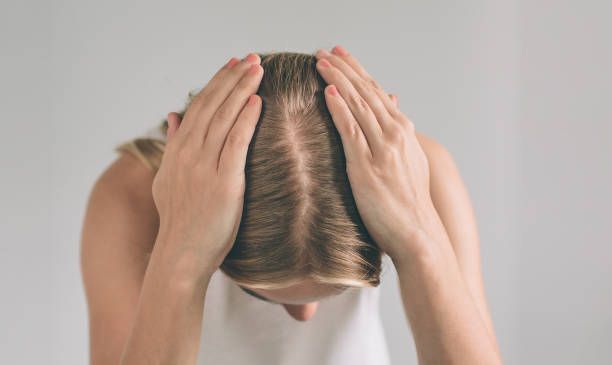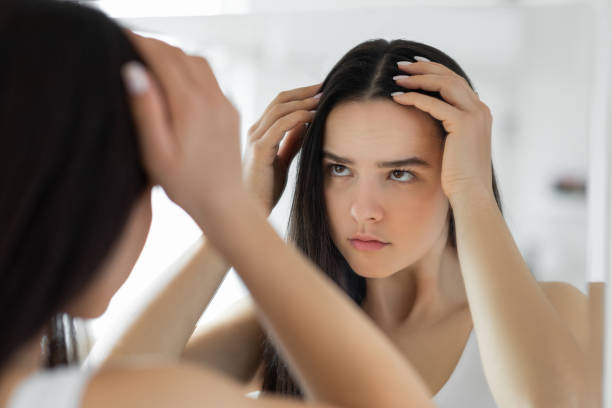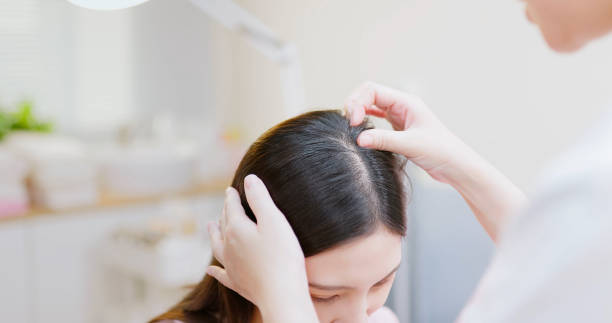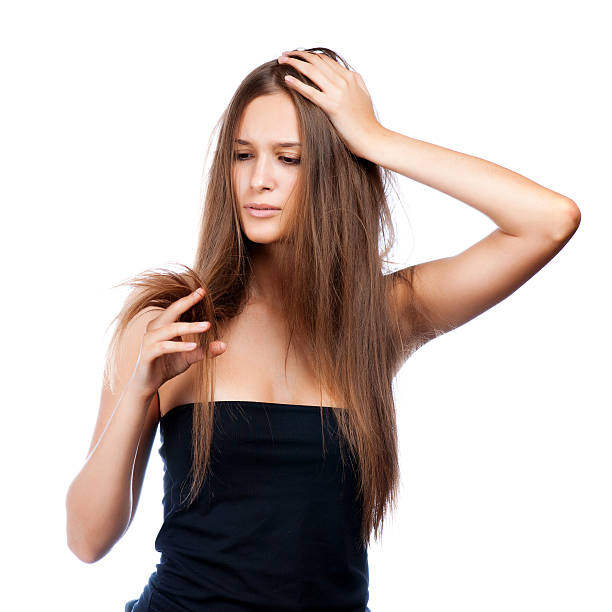I. Introduction
A healthy scalp is the foundation of luscious locks and confidence. Understanding the intricacies of scalp health is crucial for maintaining overall well-being. In this guide, we will explore the anatomy of the scalp, discuss the importance of scalp health, and provide practical tips for a scalp care routine that promotes optimal health and vitality.
II. Anatomy of the Scalp
The scalp is a complex structure that serves essential functions. It has layers that protect it from external damage and contain hair follicles and sebaceous glands for hair growth and oil production. Understanding this structure is key to maintaining good scalp health.
III. Importance of Scalp Health
A healthy scalp isn’t just about the absence of visible issues; it significantly impacts hair growth, appearance, and self-confidence. A well-maintained scalp supports robust and shiny hair and prevents common problems like dandruff and itchiness. By nurturing our scalp, we enhance our overall hair health and, consequently, our self-esteem.

IV. Signs of a Healthy Scalp
A healthy scalp boasts a consistent texture, free from redness, flakiness, or irritation. Regular self-checks for signs of any abnormalities are crucial. Look for a scalp that feels neither too oily nor excessively dry and hair that grows uniformly without thinning patches. Remember, a healthy scalp translates to vibrant hair.
V. Common Scalp Issues
- Dandruff: A common concern, dandruff, often caused by a fungus, leads to white flakes and itching. Combat it with specialized shampoos containing active ingredients like zinc pyrithione.
- Dry Scalp: Dryness can cause itching and discomfort. Keep your |scalp| hydrated by using moisturizing shampoos and natural remedies like coconut oil massages.
- Oily Scalp: Excessive oil production can make hair greasy and prone to dandruff. Use gentle, clarifying shampoos and avoid overwashing, which can stimulate more oil production.
- Scalp Psoriasis: An autoimmune condition causing red, scaly patches. Consult a dermatologist for proper management, which may include medicated shampoos and topical treatments.
- Scalp Dermatitis: Various types of dermatitis can irritate. Identify triggers and use mild, hypoallergenic products. Seek medical advice for severe cases.
VI. Scalp Care Routine
- Shampoo Selection: Choose a sulfate-free, pH-balanced shampoo suitable for your hair type. When choosing ingredients, it’s best to go for natural options such as tea tree oil. Tea tree oil is widely recognized for its potent antimicrobial properties, making it an excellent option for various purposes.
- Regular Cleansing: Cleanse your scalp regularly to remove dirt and excess fat. Use gentle circular motions and rinse thoroughly to avoid residue buildup.
- Natural Remedies: Incorporate natural remedies like aloe vera and avocado oil for their soothing and moisturizing effects. These ingredients nourish the scalp and promote hair growth.
- Scalp Massages: Regular massages boost blood circulation, stimulating hair follicle health. Use your fingertips to massage your scalp for a few minutes each day.

VII. Lifestyle Factors and Scalp Health
- Balanced Diet: A diet rich in vitamin E and omega-3 fatty acids promotes scalp health. Include fruits, vegetables, and fish in your meals.
- Stress Management: Chronic stress can cause hair loss and scalp problems. Relaxation techniques like meditation, yoga, or deep breathing can help.
- Hydration: Staying hydrated is vital for healthy hair and scalp. Drink water daily to maintain proper hydration levels.
- Exercise: Regular physical activity improves blood circulation, ensuring that essential nutrients reach your scalp. Aim for at least 30 minutes of exercise most days of the week.
VIII. Professional Scalp Treatments
When home remedies aren’t enough, consulting professionals like dermatologists and trichologists is crucial. They can diagnose underlying issues and recommend specialized treatments tailored to your |scalp| condition. Advanced treatments like laser therapy and scalp micro pigmentation are effective for various problems, providing long-term solutions.
IX. Preventive Measures for Scalp_Issues
- Seasonal Care: Adapt your scalp care routine to changing seasons. During winter, protect your |scalp| from the cold by wearing hats, and in summer, shield it from the sun’s harsh rays to prevent sunburn.
- Protective Hairstyles: Avoid hairstyles that pull too tightly on the scalp, causing tension and hair breakage. Opt for loose styles and avoid excessive heat styling.
- Chemical-Free Products: Harsh chemicals in hair products can damage the scalp. Opt for natural, organic, and sulfate-free products to minimize the risk of irritation.
- Regular Check-ups: Schedule regular check-ups with a dermatologist or trichologist to monitor your scalp’s health and address any emerging issues promptly.

X. Conclusion: Nurturing Your Scalp for Radiant Hair
Incorporating a thoughtful |scalp| care routine into your daily regimen is the key to maintaining a healthy |scalp| and beautiful hair. By understanding the nuances of your scalp and adopting appropriate practices, you empower yourself to face the world with confidence. Remember, having a healthy |scalp| is the key to achieving radiant and vibrant hair. It’s important to maintain a healthy |scalp| in order to have healthy hair.
XI. Frequently Asked Questions (FAQ)
Q1: Can stress really cause scalp issues like dandruff?
A: Yes, chronic stress can disrupt the balance of hormones and oil production, leading to |scalp| problems, including dandruff.
Q2: How often should I wash my hair to maintain a healthy scalp?
A: The frequency of washing depends on your hair type. Generally, washing your hair 2-3 times a week is sufficient for most people. Overwashing can strip the |scalp| of natural oils, leading to dryness.
Q3: Are there specific foods that promote scalp health?
A: Yes, foods rich in vitamins A and C, as well as zinc, contribute to a healthy s|calp|. Include leafy greens, citrus fruits, nuts, and seeds in your diet.
Q4: Can scalp massages really promote hair growth?
A: Yes, |scalp| massages improve blood circulation, ensuring that hair follicles receive adequate nutrients. Regular massages can promote hair growth and reduce hair loss.
Q5: How can I protect my scalp from sun damage?
A: Wear hats or use umbrellas when spending prolonged periods in the sun. Additionally, consider using hair products with UV protection to shield your |scalp| and hair from harmful sun rays.
Q6: Is it normal to experience itching on the scalp, and what can I do about it?
A: Occasional itching can be expected, but persistent itching might indicate an underlying issue. It could be due to dryness, dandruff, or even an allergic reaction to hair products. Use a mild, anti-dandruff shampoo or consult a dermatologist if the itching persists.
Q7: Can hormonal changes, such as during pregnancy or menopause, affect scalp health?
A: Yes, hormonal fluctuations can impact oil production and hair growth. Many women experience changes in their |scalp| health during pregnancy or menopause. Maintaining a balanced diet, staying hydrated, and consulting a healthcare professional can help manage these changes.
Q8: Are there specific essential oils that are beneficial for scalp health?
A: Yes, several essential oils have properties that promote |scalp| health. Tea tree oil is known for its antimicrobial properties and can help combat dandruff. Lavender oil has soothing effects and can alleviate itchiness. Peppermint oil improves blood circulation, promoting hair growth. Always dilute essential oils with a carrier oil before applying to the scalp.
Q9: Can certain medications cause scalp issues, and how can they be managed?
A: Some medications, including those for blood pressure, cholesterol, and hormonal imbalances, can impact |scalp| health. If you suspect your medication is causing |scalp| issues, consult your healthcare provider. They might adjust your dosage or recommend specific |scalp-friendly| products to manage the side effects.
Q10: How can I protect my scalp while using heat styling tools?
A: Use heat styling tools correctly to avoid |scalp| and hair damage. Keep a safe distance from skin, use a heat protectant spray, and limit use to a few times per week.
Taking the time to understand your |scalp|, its unique needs, and the factors that influence its health is essential. By addressing common concerns and following a proactive approach to |scalp| care, you can enjoy not only a healthy |scalp| but also beautiful, resilient hair. Stay informed, adopt |scalp-friendly| practices, and embrace the journey toward optimal scalp health.
Incorporating these practices into your daily routine and being mindful of your scalp’s needs will help you achieve healthy and vibrant hair. Embrace the journey to optimal scalp health and enjoy the confidence that comes with it.
Read also.. Navigating Telogen Effluvium: Causes, Symptoms, and Effective Management

